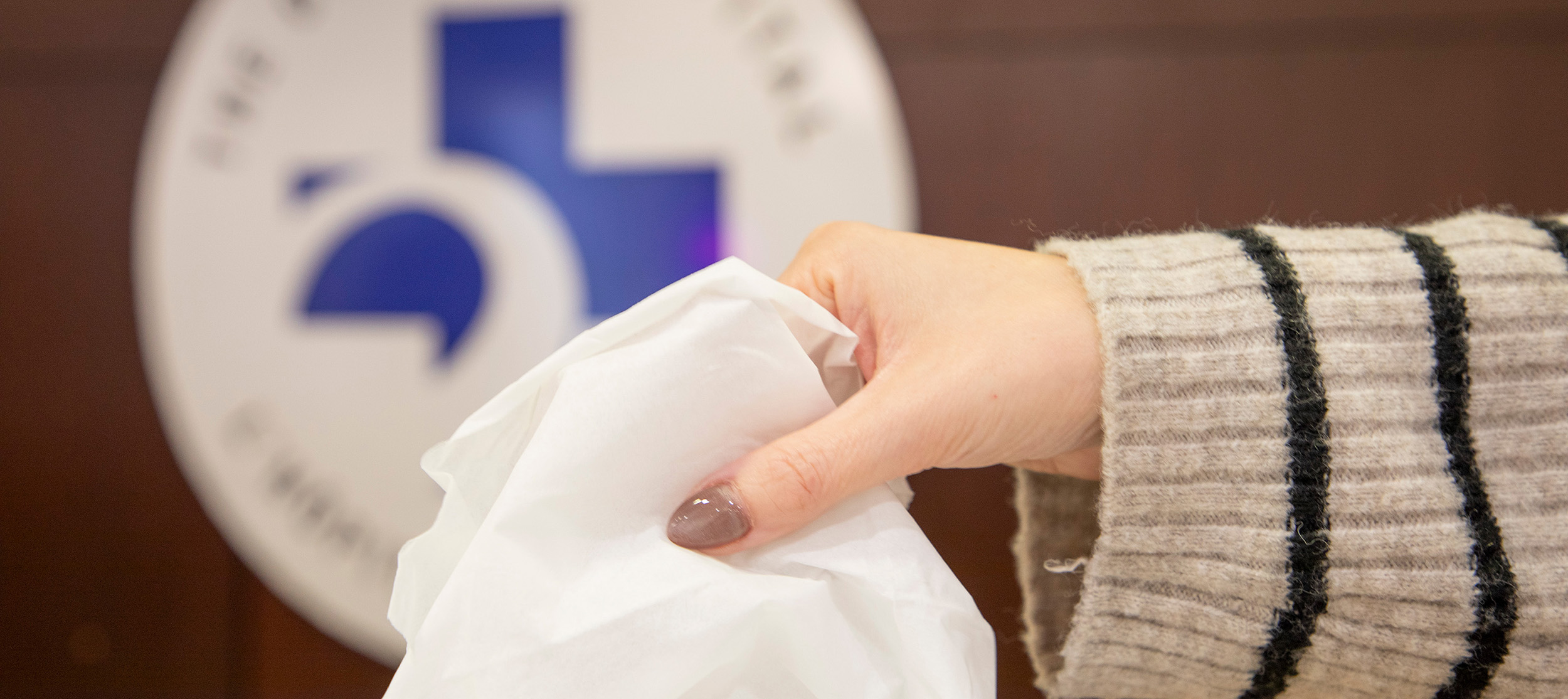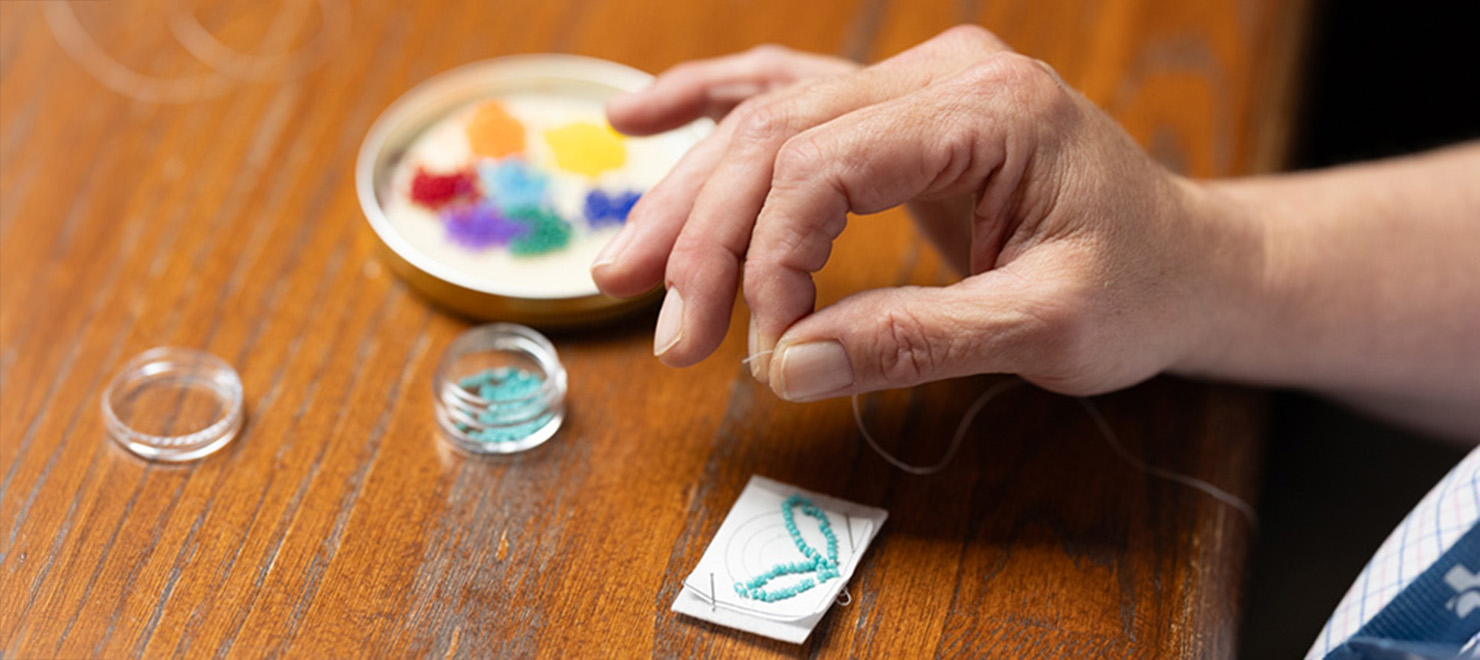
Practicing compassion for yourself and trying your best to support your long-term wellness may help you manage your stress.
It is normal to feel stress related to COVID-19 and all the pressures that it may present. As the weeks of change and uncertainty continue, many of us are feeling stretched and stressed. Some of us are letting go of some of the coping strategies that have helped us and are adding strategies that make us feel better in the moment, but we might regret later on. Read on for some validation that you are not alone in this struggle.
Stress is a normal, often healthy, response to environmental change or threat that requires us to adjust or respond in some way. COVID-19 has brought many changes, challenges and uncertainties.
Increases in stress can impact our emotions, mind and body. People may find that they are feeling more anxious, overwhelmed, sad, fearful, angry, frustrated, irritable or lonely. Many might feel more worried, have more negative thoughts, and have difficulty concentrating or making decisions. Stress can also create fatigue, muscle tension and headaches.

We all experience stress differently. It can be helpful to pay attention to how you experience stress to understand when and how to cope effectively.
Coping with stress
People cope with stress in many different ways. There is a complex interplay of biological, genetic, environmental, and psychological factors that all work to increase or decrease someone’s risk for using alcohol and other substances, especially in response to stress.
For anyone who is dealing with prolonged stress, there can be times when we start to feel less control over some of our coping strategies. Some behaviours can actually increase our levels of stress, anxiety and feelings of isolation, and can lower our mood.
When this happens, we can start to feel as if our behaviours are gaining control over our day, and/or taking up too much space in our lives. Perhaps other people in our lives are telling us so.

When we are stressed, it is normal to try to get our bodies back to feeling more comfortable. Using food, exercise, alcohol, gambling, video games, internet surfing, etc. are all ways that people try to manage their emotions. Although they can help with the feelings in that moment, they can also result in an increase in negative feelings when the impact wears off. Over time, the behaviours we used to try to feel more in control actually do the opposite. And there can be negative consequences to our physical and emotional health.
Here are some things you can try to manage your stress
- Do the best you can to support your wellness choices whenever possible.
- Sleep and rest when you can; try to keep moving and stay active; try to make healthy food choices when possible.
- Monitor your use of stimulants like caffeine and nicotine to see if they are negatively impacting your sleep and stress.
- Stay within the guidelines for alcohol and recreational substances like cannabis.
- Visit (or meet virtually) with your doctor or other member of your care team regularly.
- Do activities that you enjoy.
- Follow a daily schedule or routine to help provide structure, even when you are staying home.
- Try some relaxation exercises.
- Practice positive self-talk.
- Show self-compassion through comforting or soothing activities (e.g., have a bubble bath or curl up with a warm blanket).
- Reach out to supportive people in your life via phone or video call.
If you are having trouble coping with stress, consider seeking out professional supports like a mental health professional. You can talk to your doctor or other member of your care team about your options.
More resources
Infographic: Managing stress, anxiety and substance use for health-care providers
Managing substance use during COVID-19 pandemic (podcast)

Support patient care and research at
The Ottawa Hospital
You might also like…
Living with chronic pain? This online tool offers help — and hope
The Power Over Pain Portal is a free virtual resource hub designed to help empower youth and adults living with chronic pain through education and peer support.
What to do in an emergency: New first aid video series on YouTube
Would you know what to do if you saw someone experience a stroke, heart attack or opioid overdose? We’ve launched a series of easy-to-follow videos on YouTube that walk you through how to respond to common first aid emergencies.
Flu season 101: A quick guide to keeping the sniffles away
Got two minutes? This short guide could help you make it through flu season without stocking up on tissues.
OnTrack program helps young adults experiencing psychosis find their footing
A unique program run by The Ottawa Hospital is celebrating 20 years of providing care and support to young adults navigating their first episode of psychosis.
Bringing communities together, one stitch at a time
In celebration of June being both National Indigenous History Month and Pride Month, The Ottawa Hospital hosted a beading workshop for Indigenous and 2SLGBTQIA+ staff and their allies.
Aging well: Guidance for older adults
In this special video series for both older adults and their loved ones, geriatric care specialists from The Ottawa Hospital offer guidance on navigating common health-care challenges that may arise with aging.


 To reset, hold the Ctrl key, then press 0.
To reset, hold the Ctrl key, then press 0.





